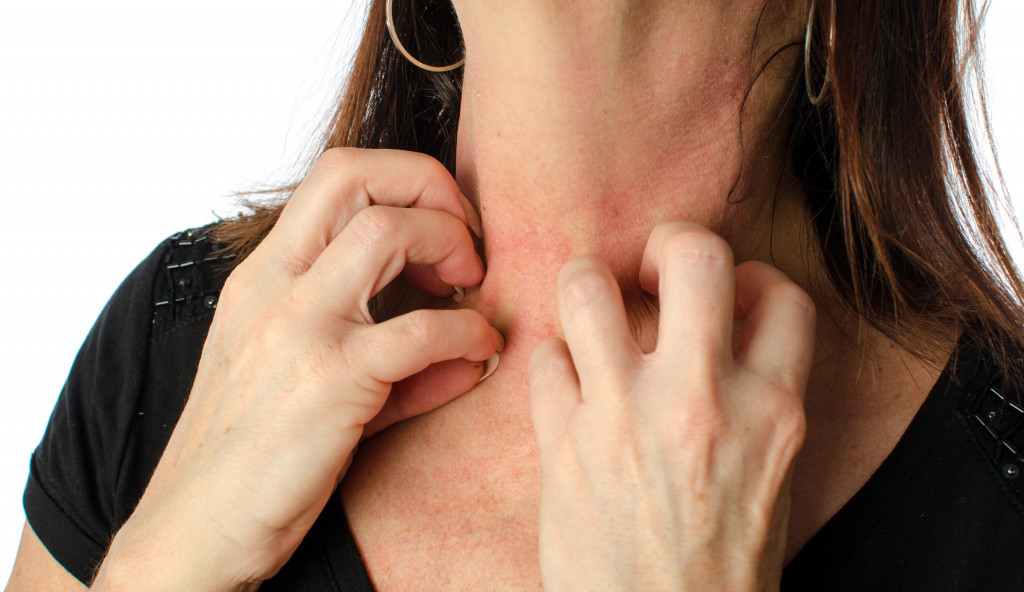- People with sensitive skin are prone to irritation and react to environmental elements, skin care products, hormonal changes, and lifestyle habits.
- Common signs of having sensitive skin include redness, itching, burning sensation, and tightness after washing.
- To manage sensitive skin, it is important to identify triggers and be gentle with your skincare routine.
- Use hypoallergenic products free from harsh chemicals, avoid extreme temperatures, opt for natural fabrics, and keep track of what causes irritation.
For those with sensitive skin, you know what it’s like to be extra cautious when shopping for beauty products. You know that even the seemingly harmless ingredients can lead to redness, itching, or breakouts. But what does it actually mean to have sensitive skin? And how should you manage it? Here’s a look.
What is Sensitive Skin
Sensitive skin is an umbrella term for various conditions that affect the skin and cause irritation. Generally speaking, people with sensitive skin are more prone to inflammation and react more quickly and intensely to irritants than people with normal or combination skin types.
It’s important to note that sensitive skin is not a medical condition. It’s simply a descriptor used by dermatologists and skincare professionals. The following are indicators that you may have sensitive skin:
- Redness or flushing of the skin when exposed to certain substances, products, temperature changes, and stress
- A tendency to itch easily
- A burning sensation on the skin
- Skin that feels very tight after washing
Common Causes of Sensitive Skin
Having a sensitive skin type doesn’t mean having a medical condition. Instead, it means your skin is extra reactive to external and internal factors. The most common causes of sensitive skin include:
Environmental Factors
Exposure to environmental elements like extreme temperatures, harsh winds, and air pollution can cause irritation. Some may experience more intense reactions from exposure to the sun, wind, cold air, or heat. This may include redness, itching, burning, or flaking.
Skin Care Products
Products that contain fragrances, preservatives, and other harsh chemicals can cause skin irritation. When unknowingly applied to sensitive skin, these ingredients can cause redness, itching, and burning. In some worst cases, it can even lead to an allergic reaction.

Hormonal Changes
The body’s hormones can also affect skin sensitivity. For example, during pregnancy or menopause, the skin may become more reactive and sensitive to environmental factors and products when hormones change rapidly. Other hormonal changes, like those brought on by birth control pills or steroids, can also cause skin sensitivity.
Lifestyle Habits
Certain lifestyle habits can also affect the skin, such as smoking and drinking too much alcohol or caffeine. Smoking, in particular, has been linked to reduced collagen production and a weakened immune system, which can lead to skin sensitivity.
How To Manage Sensitive Skin
If you know that you have sensitive skin, there are some steps you can take to manage it. Here are a few tips:
Identify Your Triggers
Keeping track of what triggers your sensitivity is key to managing it better. Make a note of products that cause irritation and environmental factors like extreme temperatures or activities that make your skin react more than usual. This knowledge will help inform your decisions regarding your skincare routine and lifestyle.
Be Gentle With Your Skincare Routine
Those with sensitive skin should use gentle cleansers and moisturizing products designed for your skin type rather than harsh chemical-based items that could irritate the skin further. Additionally, try applying products on damp rather than dry skin; this helps seal in moisture better and prevents irritation from occurring due to over-drying the face when using skincare items like toners or exfoliators.
It is also recommended to use gentle hypoallergenic lotions free of fragrances and alcohol. Such lotions can help soothe skin irritation, reduce redness, and provide gentle hydration without causing further irritation. These are usually infused with natural oils such as jojoba oil and can be used after showering or bathing.
Choose the Right Fabrics and Clothing
When selecting clothing material for yourself, try going for natural fabrics instead of synthetic ones since these are less likely to irritate when worn against the body throughout the day. A good example is wearing cotton instead of polyester or nylon. This is because natural fabrics are more breathable and are free of harsh chemicals, such as dyes and formaldehyde finishes.
Living with sensitive skin can be challenging, especially when you don’t know what will trigger a reaction. But understanding the causes and taking steps to manage your skin can help reduce irritation, redness, and other types of discomfort associated with having sensitive skin. With the right routine and products, you can still achieve beautiful, healthy-looking skin without worrying about flare-ups or other reactions.



